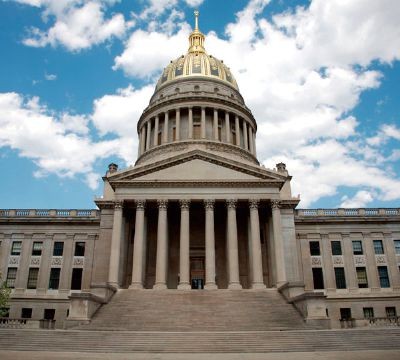MORGANTOWN — A good portion of Wednesday’s COVID-19 briefing from the Capitol was taken up with the national pause placed on the Johnson & Johnson vaccine after a blood-clotting issue arose among six women who’d had the vaccine.
COVID-19 Czar Clay Marsh reviewed the CDC’s and FDA’s explanation of the pause. More than 6.8 million doses of the J&J vaccine have been administered, but the agencies are reviewing data involving six reported U.S. cases of a rare and severe type of blood clot. All six cases occurred among women between the ages of 18 and 48, and symptoms occurred 6-to-13 days after vaccination.
Treatment of this specific type of blood clot is different from the treatment that might typically be administered. Usually, an anticoagulant drug called heparin is used to treat blood clots. In this setting, administration of heparin may be dangerous, and alternative treatments need to be given.
CDC planned to convene a meeting of the Advisory Committee on Immunization Practices on Wednesday to further review these cases and assess their potential significance. FDA will review that analysis as it also investigates these cases.
Marsh and Gov. Jim Justice noted that the cases under investigation represent a bit less than 1 in 1 million odds of experiencing a problem.
Overall, Marsh said, “The vaccines are all very safe. Everybody is acting out of an abundance of caution.” The state’s vaccine program is responsible for the 90% reduction in COVID-related deaths in the first weeks of 2021.
State Health Officer Ayne Amjad said the state has received 98,200 doses of J&J and administered 58,000 — a relatively small portion of the total 1,114,670 total doses of all three vaccines administered.
Because it’s a single dose, she said, they use it strategically for those difficult to follow up on for a two-dose vaccine, including the homeless, the homebound, people in congregate settings, and people who are mobile and may not be able to show up for a second dose.
“We hope to get Johnson & Johnson back into our portfolio,” she said. Meanwhile, they’re making alternate plans for those who would typically receive it.
In light of the fear and skepticism some have about COVID vaccines in general, Justice fielded a question on what the J&J issue does for their trying to convince all to get vaccinated.
“It makes it tougher, doesn’t it,” he said. “Wouldn’t it be terrible if the only way we can convince them is for more people to die.”
Justice announced that on Monday, FEMA began offering financial assistance for funeral expenses incurred after January 2020 for COVID-related deaths. To apply or get more information call 844-684-6333 or go to fema.gov/disasters/coronavirus/economic/funeral-assistance.
Justice said the state’s unemployment rate dropped to 5.9% in March, the first dip below 6% since the start of the pandemic. It’s within 0.6% of the pre-pandemic rate, which was at record lows. March marked the 11th consecutive month the rate has fallen, and it’s now better than the national average.
No briefing can be free of politics, and the failed personal income tax repeal bill and the House’s 0-100 vote against what the Senate offered on the last day of the session came up several times.
Justice continued his criticism of the House position. “Their grandstanding and their showing their behind really just mooned our people,” he said.
Justice also fielded a question regarding the transgender athlete bill and Monday’s statement from the NCAA’s Board of Governors. The board said, “When determining where championships are held, NCAA policy directs that only locations where hosts can commit to providing an environment that is safe, healthy and free of discrimination should be selected. We will continue to closely monitor these situations to determine whether NCAA championships can be conducted in ways that are welcoming and respectful of all participants.”
Justice was asked if he is considering a veto of the bill in light of that statement.
Justice said of the bill, “The addition of the college aspect could cause some ramifications.” But he supports its intent regarding middle school, high school and college-level sports. “The NCAA has moved to a more politically correct, liberal body.”
The NCAA could could penalize West Virginia, he said, but he has no plans to veto the bill.
TWEET David Beard@dbeardtdp
EMAIL dbeard@dominionpost.com




